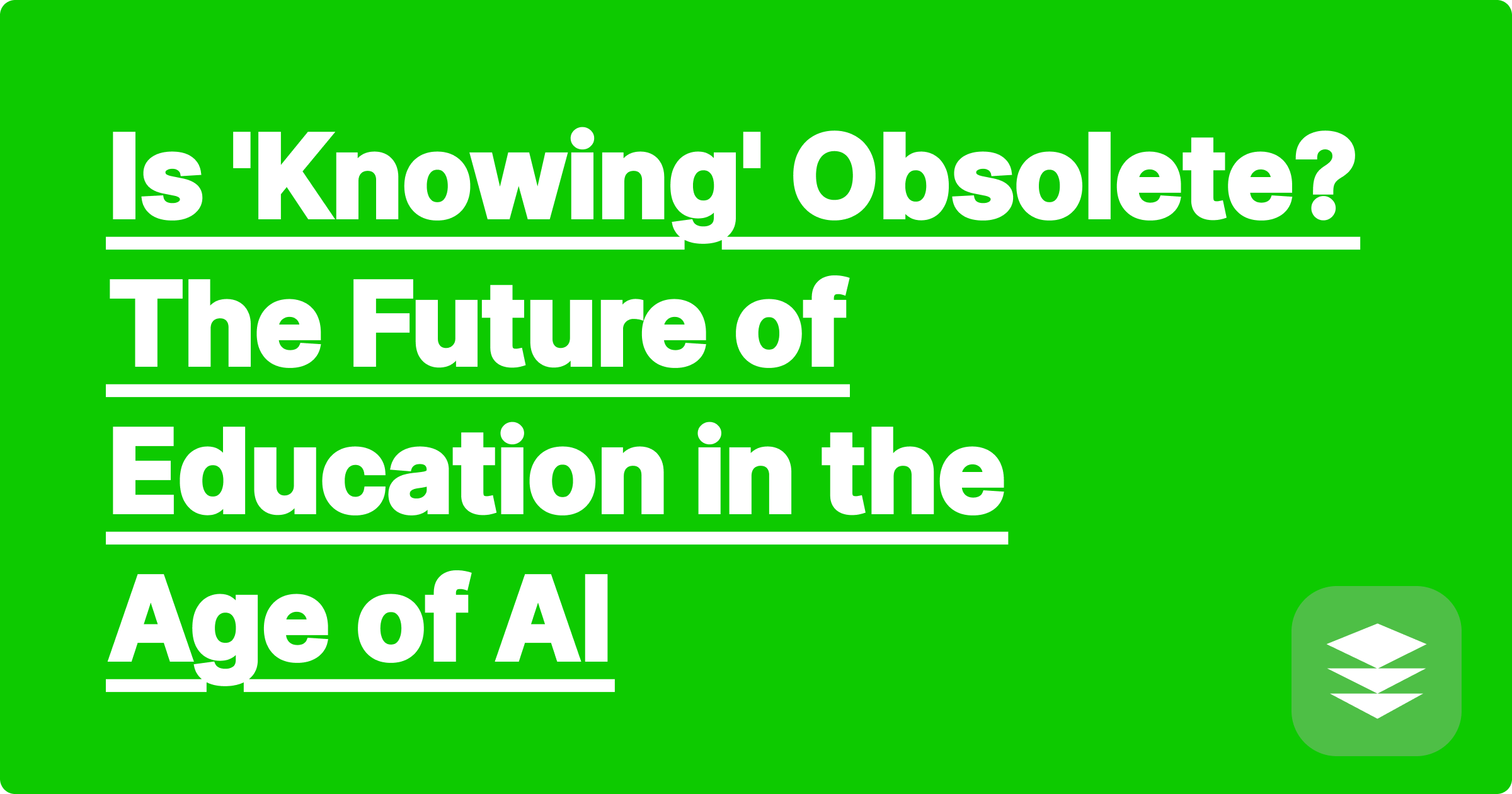
For centuries, education has been synonymous with the acquisition of knowledge. Being "smart" meant having a vast amount of information memorized in your brain. But we are now at a historical inflection point. With an AI assistant in our pocket that can instantly recall any fact, formula, or historical date, the traditional value of memorized knowledge is plummeting. If an AI can "know" everything, then what is the purpose of human learning? This question is at the heart of the modern ai and education philosophy.
The future of intelligence isn't about how much you know; it's about the quality of your thinking. In the age of AI, the most valuable skills are not those related to knowledge retention, but those related to knowledge creation and application. The critical skills for the 21st century are:
This is why the very design of the GPAI suite is a reflection of this new educational philosophy. It's not built to just give you answers; it's built to be a "thought partner," an extension of your own mind.
[Image: A silhouette of a human head with a glowing, digital brain. Inside the brain, puzzle pieces labeled "AI Data," "Questions," and "Insight" are coming together. Alt-text: A visual representation of the future of knowledge being a partnership between human thought and AI data.]
To thrive in the future, you must practice these new skills.
Is knowing obsolete? The memorization of isolated facts, yes. But deep, integrated, and applicable knowledge is more valuable than ever. The future isn't about replacing your brain with an AI; it's about augmenting it. AI becomes your perfect memory and your tireless calculator, freeing up your human mind for what it does best: curiosity, creativity, and wisdom.
A: This is a common concern. Think of it like a calculator. We no longer memorize how to calculate square roots by hand, but this has freed up our cognitive resources to learn more advanced mathematics. Similarly, AI frees up our memory from a "storage" task to a "processing" and "connecting" task.
A: Prompt engineering—the art and science of asking good questions to an AI. Your ability to formulate a precise, insightful, and creative prompt will directly determine the quality of the output you receive. This skill is becoming more valuable than knowing any specific piece of information.
The educational landscape is changing faster than ever before. Don't cling to an outdated model of learning. Embrace the new tools at your disposal and start training the skills that will matter for the rest of your life. The future of knowledge isn't about what's in your head; it's about what you can do with the universe of information at your fingertips.
[Start practicing the skills of the future today. Use the GPAI Suite as your personal thinking partner. Sign up for 100 free credits.]
Is 'Knowing' Obsolete? The Future of Education in the Age of AI
How AI Can Help Us Rediscover the 'Play' in Learning
Your Personal 'Anti-Bias' Assistant: Using AI to Challenge Your Own Assumptions
The Ethics of 'Perfect' Submissions: A Conversation About the 'Humanizer'
Beyond STEM: How an AI Solver Can Help with Philosophy and Logic Proofs
The 'Forgetting Curve' is Now Optional: How AI Creates Your External Memory
Can an AI Have a 'Eureka!' Moment? Exploring a Model's Inner Workings
From Information Scarcity to Abundance: A New Skillset is Required
Just Trust Me, Bro': Why Showing Your Work (with AI) Builds Credibility